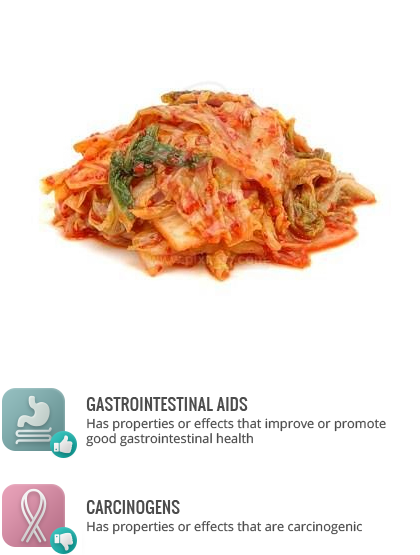Kimchi
Definition
Kimchi is a spicy, sour Korean condiment of vegetables, most commonly Napa cabbage, lactofermented with a paste of red chili flakes and assorted seasonings. The paste may include rice starch, fish, scallions, ginger, garlic, brined shrimp, or spices and vegetables such as radish, daikon, cucumber, may be used with or in place of cabbage. White kimchi (made without chili flakes) also exists.
Health considerations
Kimchi is typically low in calories, high in sodium, and a source of live lactic acid cultures, vitamin C, carotene, B vitamins, fiber, and other micronutrients and compounds. While not extensively studied, kimchi has traditionally been associated with improved digestion and digestive health, due in part to its lactic acid bacteria acting as probiotics. In studies of Korean patients with gastric cancer, years of heavy intake of kimchi and other fermented products was associated with gastric cancer. See: Probiotics.
Keep in mind
Kimchi may be made with shrimp, shrimp sauce, fish sauce, or other seafoods, making it unsuitable for individuals sensitive to or avoiding seafood.
May be found in
Sold as is, Korean dishes
References
International Symposium on Vegetable Quality of Fresh and Fermented Vegetables
World Journal of Gastroenterology
Journal of Applied Microbiology
Alternative Spellings and Names
Kimchee


